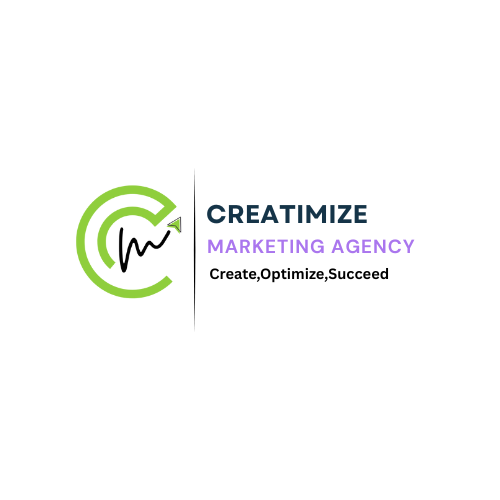The rise of Ai in Marketing

In today’s digital world, the rise of AI in marketing is transforming how businesses reach and engage with their audiences. Artificial intelligence (AI) is no longer just a futuristic concept — it’s a practical tool reshaping marketing strategies worldwide.

What is Artificial Intelligence?
Before we dive deeper, let’s clarify what artificial intelligence is.
Artificial Intelligence (AI) refers to the simulation of human intelligence processes by machines, especially computer systems. In simple words, AI makes it possible for machines to learn, reason, and solve problems — just like humans.
Examples of Artificial Intelligence:
- Chatbots that handle customer support
- Recommendation systems on Netflix and Amazon
- Voice assistants like Siri and Alexa
- Smart ads that target your interests
Understanding AI helps us grasp its massive impact on marketing.
What is the Role of AI in Marketing?
AI is revolutionizing marketing in multiple ways. Businesses use it to:
- Analyze massive data sets quickly.
- Personalize customer experiences.
- Automate repetitive tasks.
- Predict consumer behavior.
- Optimize ad targeting.
With AI, marketers can understand their audience better and deliver more relevant content.
How Does AI Affect Marketing Strategies?
The rise of AI in digital marketing affects strategies at every level.
1. Data Analysis
AI tools process customer data faster than humans ever could. Marketers can track buyer journeys, preferences, and trends with ease.
2. Personalization
AI allows brands to deliver hyper-personalized messages. Think of Spotify’s personalized playlists or Netflix’s recommendations.
3. Content Creation
Some AI tools help create blog posts, product descriptions, or social media content. While human creativity is still vital, AI makes content production more efficient.
4. Customer Service
AI-powered chatbots offer 24/7 customer support, improving response time and user experience.
5. Ad Optimization
AI automates bidding and placement for digital ads, ensuring higher ROI.
Benefits of AI in Marketing
The rise of AI in digital marketing offers clear advantages:
- Better Efficiency: Automate routine tasks like email marketing or reporting.
- Cost Savings: Reduce labor costs with automation.
- Improved Accuracy: Data-driven decisions minimize guesswork.
- Enhanced Customer Experience: Deliver the right message to the right audience.
Pros and Cons of AI in Marketing
Let’s weigh the pros and cons of AI in marketing.
| Pros | Cons |
|---|---|
| Automates tasks and saves time | High initial setup cost |
| Improves customer targeting | Risk of job displacement |
| Enhances personalization | Data privacy concerns |
| Increases ROI | Requires skilled personnel to manage |
How Small Businesses Use AI in Marketing
Small businesses are also riding the AI wave. You don’t need a massive budget to use AI tools. Many affordable AI-based apps help with:
- Social media scheduling
- Email campaign optimization
- Customer segmentation
- Website chatbots
What is the Future of AI in Marketing?
As AI evolves, its role in marketing will only expand. Here’s what to expect:
- Voice Search Optimization: More people use voice assistants, so marketers must adapt content for voice queries.
- Visual Search: Platforms like Pinterest are already using AI to help users search with images.
- Predictive Analytics: AI will predict trends and customer needs more accurately.
- Hyper-Personalization: Marketing messages will become even more tailored to individuals.
Best Practices to Use AI in Marketing
To leverage the rise of AI in marketing effectively:
✅ Start Small: Test simple AI tools like chatbots.
✅ Protect Data: Follow data privacy laws and build customer trust.
✅ Train Your Team: Upskill your team to manage AI tools.
✅ Combine AI with Human Creativity: AI is powerful, but human input is irreplaceable.
Challenges of AI in Marketing
Despite its advantages, AI has challenges:
- Data Privacy: Collecting data responsibly is a must.
- Ethical Concerns: Bias in AI algorithms can lead to unfair targeting.
- Cost: Advanced AI systems can be expensive.
Case Studies: Brands Winning with AI in Marketing
Many brands already show the power of AI:
- Spotify: Uses AI to recommend songs and create custom playlists.
- Starbucks: AI helps personalize offers based on purchase history.
- Amazon: Uses AI for product recommendations, boosting sales.
These examples prove that the rise of AI in marketing is here to stay.
Final Thoughts on The Rise of AI in Marketing
The rise of AI in marketing is transforming how businesses connect with customers. From big corporations to small startups, AI empowers marketers to work smarter, not harder.
While AI won’t replace human marketers, it’s a powerful ally. Embrace it, learn it, and use it to grow your business in the digital age.
